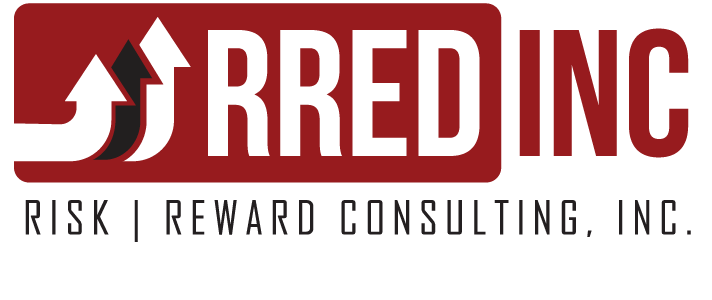
People, especially business leaders, who obsess over goals or demonstrate obsessive behaviors need to avoid making choices that reject good sense – even if they drive great results. Obsessive thinking and behavior can be a good thing in personal life and in business if managed correctly. However, when they drive people away and/or create a culture steeped in “my way or the highway” thinking, that will kill motivation, enthusiasm and any great results achieved will be only short term.
It appears that business leaders around the world are finally getting the message — they can no longer continue with their obsession over short-term profits growth at the expense of a healthy society. (Survey by Price Waterhouse of 1400 chief executives – Huffington Post by Jo Confino 1/20/2016).
As outlined in an article appearing in Business Insider, the CEO of one of the largest fast food chains had a misguided obsession with a competitor that could drive his business into the ground. He is targeting any customer by stealing market share from the competition and other chains instead of focusing on his core customer base. Thus, the business suffered financial losses for several years. The new CEO of a major internet search engine provider is described as “absurd in her obsession with details”. The co-founder of another search engine provider is described as “obsessed with efficiency and possessing tunnel vision”.
In each of these instances described above, the CEOs ultimately were successful in varying degrees by turning their companies in the right direction and getting back to profitability but at what price with their stakeholders, customers, employees, Wall Street and the court of public opinion?
What do top logistics companies have in common? “Shrewd and experienced management teams and an obsession with service and operational details.” (Logistics Management, John D. Schultz, April, 2011)
This obsessive behavior makes total sense when it provides high levels of customer satisfaction and expectations. Making the right choices and imposing high standards in transportation and logistics companies’ operations may be obsessive, but stakeholders understand and support the results. It doesn’t work when obsession without reason or following good business principles dominates the CEO’s thinking
Are you obsessive? Are you managing your passions correctly or are you obsessed with whatever is important to you at the expense of good results, respecting your workforce or being a good leader?
If you know you have an obsessive desire to achieve specific outcomes and recognize that you need to tone it down, then maybe change is possible and necessary.
Want to change? Consider whether these statements apply to you:
- There are some things that I can’t let go of or delegate
- I am reluctant to change even when given a reason to do so
- I am hard driving and very detailed oriented
- I am firm in my position when dealing with others
- As a leader, I impose my personality on others
A good example is the small trucking company owner in the Midwest who was obsessed with buying a piece of land and building his own truck terminal rather than continuing to rent. Economically it probably made sense, however, the company was struggling to become profitable. The CEO’s banker discouraged the project, preferring to postpone it for a year or two. Then came the economic meltdown of 2007 and the business came very close to collapsing. It was essentially bankrupt but the owner refused to back off his fixation on the building that had to be built.
The banker terminated his business relationship for fear of the company closing; the owner refused to stop the project and had to resort to some very expensive sources of capital to keep afloat. It took 5 years, enormous anxiety and stress to get right side up financially. This was obsession on steroids.
How can an obsession be useful without overwhelming positive behaviors while still allowing for a success path?
Learn to manage your obsessions and passions – be confident, but don’t be a narcissist—self-centered (instead of success-centered), singularly focused, inflexible and reckless. Leaders who are humble and who focus on others are more successful and capture the cooperation and passion of their subordinates.
Stop believing that you are “special” and no one else can do what needs to be done.
- Take criticism well and do not be offended or supersensitive to constructive comments about your behaviors, passion or unwillingness to compromise
- Have empathy for others and their points of view
- Control your feelings of brilliance, power and unlimited success at the expense of alienating others around you
- Refrain from soliciting and requiring others to admire you
Managing Your Obsessions for Better Interpersonal Relationships and Results
Being obsessive can have advantages if controlled and if you truly care about results and those that help you achieve them.
Discard your obsessions in place of maintaining a passion for what you believe in and who you are –but make it work for you and not against others.
- Make a great first, but lasting impression and make it real; don’t disguise your obsessive personality only to have it surface later
- Give credit to others and take blame when appropriate
- Be nice! Project integrity, honesty and competence
Consider that in business even achievement can become—in and of itself—an obsession. You can be obsessed for the right reason and right outcome. But when it is blind obsession, it will lead you to negative outcomes. The true test of an obsession that won’t result in a positive outcome is the notion that you can’t argue with an obsession—it’s there and will appear nonnegotiable.
Things to Think About
- Lesson #1: Don’t confuse efforts with results. Obsession doesn’t always rule.
- Lesson #2: Look at the reason for your motivation, decisions or actions and question them. Don’t move ahead for the wrong reasons and don’t rationalize your decisions based on illogical thinking.
- Lesson # 3: Let others you trust become part of your thought process and goal setting –make it a team effort.
Do you consider yourself a great leader of people and a good CEO of your business, your department, your job? Take the Self-Scoring Seven Habits Profile Quiz and find out.
For more information and a free sample of the Profile Quiz, contact me atnorris@rredinc.com or on LinkedIn at http://www.linkedin.com/in.norrisberen

